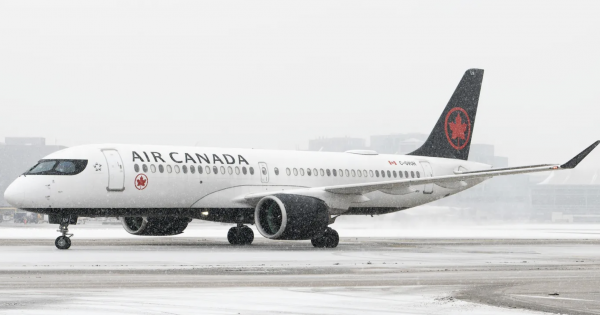ARTICLE AD BOX

Japan Airlines, one of the nation’s leading carriers, encountered a significant cyberattack on a Thursday morning in late December. This unexpected disruption has affected both domestic and international flights, raising questions about cybersecurity measures in the aviation industry and its broader implications for global travelers.
Initial Disruptions Reported
On the day of the attack, the airline issued a statement explaining the extent of the situation. It acknowledged halting flight bookings for the day and disabling its mobile application as a precaution. The incident began at approximately 7:24 a.m., causing malfunctions in both internal and external systems that are critical to the airline’s operations.
The airline clarified it was actively investigating the scope of the issue while working diligently to restore its systems. It noted disruptions in systems responsible for external communication, a vital component of airline operations, particularly during periods of heightened activity.
Flight Delays and Operational Impact
By midday, nearly 40 flights had been delayed across several airports in Japan. Despite the disruptions, Japan’s national broadcaster, NHK, reported no widespread flight cancellations. This relatively contained fallout suggests that Japan Airlines’ immediate response mitigated some of the potential chaos.
However, such incidents often ripple beyond the initial delays, affecting connecting flights and schedules for passengers traveling internationally. For business travelers, tourists, and cargo shipments, even minor delays in a tightly regulated industry can create cascading problems.
Resilience Amid Challenges
While Japan Airlines worked toward restoring operations swiftly, it became evident that the airline’s contingency planning played a role in preventing a more catastrophic breakdown. Yet, this incident underscored vulnerabilities in critical systems that, if exploited, could lead to severe consequences for the travel industry.
Meanwhile, ANA Holdings, another major Japanese airline, reported no disruptions to its operations during the same period. This distinction highlights how varying levels of cybersecurity preparedness and response strategies can affect outcomes.
Global Travel and Industry Ramifications
1. Impact on Passenger Confidence
Travelers around the world are increasingly reliant on digital systems for booking, check-ins, and real-time updates. A breach of this magnitude raises concerns about the safety of personal data and the reliability of airline operations. Passengers may begin to scrutinize airlines’ cybersecurity measures, influencing their travel decisions.
2. Operational and Financial Costs
For airlines, cyberattacks lead to immediate financial repercussions due to lost revenue, increased operational costs, and potential compensations to affected passengers. Additionally, the reputational damage can deter future bookings, creating a longer-term impact on revenues.
3. Industry-Wide Challenges
The aviation sector is a high-profile target for cybercriminals due to its reliance on interconnected systems and sensitive data. This incident serves as a wake-up call for airlines globally to strengthen their cybersecurity frameworks. It may also prompt governments and regulatory bodies to introduce stricter mandates for cybersecurity compliance in the aviation industry.
What Travelers Should Expect
Key Considerations for Passengers:
- Delays and Rescheduling: Passengers flying with Japan Airlines may face residual delays as the airline stabilizes its operations.
- Data Security Concerns: Frequent flyers might seek assurances about the safety of their personal and financial information.
As these disruptions often affect more than the airline under attack, passengers on connecting flights with partner airlines should remain vigilant and check for updates.
Broader Lessons for the Aviation Industry
Cybersecurity as a Priority
This incident reinforces the need for airlines to prioritize cybersecurity investments. Advanced threat detection systems, employee training programs, and robust incident response plans must become standard across the industry.
Collaborative Efforts Required
The aviation industry operates on a networked system, with airlines, airports, and regulatory bodies working in tandem. A collective approach to cybersecurity is essential to mitigate risks and respond effectively to attacks.
Resilience Amid Growing Threats
As airlines embrace digital transformation to enhance customer experiences, their exposure to cyber threats increases. Incidents like the Japan Airlines cyberattack serve as a critical reminder of the vulnerabilities that exist in an interconnected world.
Travelers, airlines, and industry stakeholders must adapt to this evolving landscape. With vigilance, preparedness, and collaboration, the industry can continue to provide safe and reliable travel experiences even in the face of emerging challenges.
The post Cyberattack Disrupts Japan Airlines with New Delays Flights Across Key Airports in Tokyo and Osaka Amid Global Travel Concerns appeared first on Travel And Tour World.
 1 month ago
27
1 month ago
27


 English (US)
English (US)